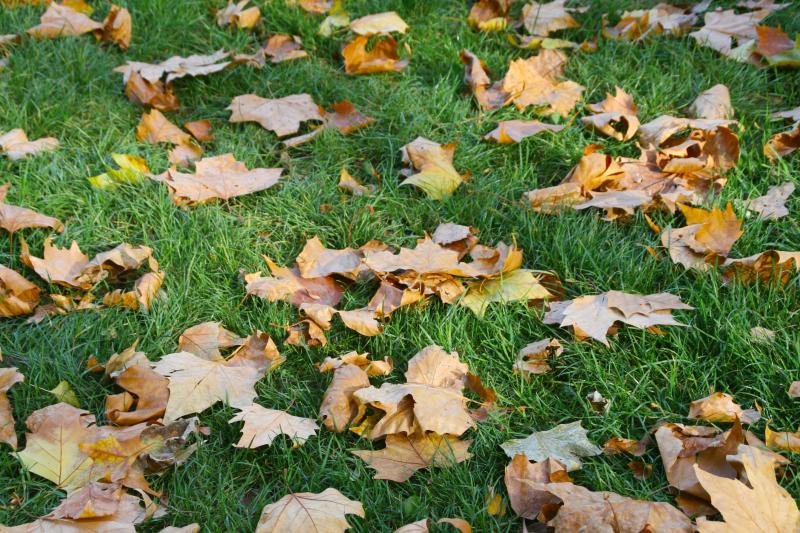Mill Pond Garden recommends best choices for lawns
September is the ideal time to overseed a lawn or renovate turf.
Lawns are the most difficult part of gardening in the Cape Region and all over horticultural climate Zone 7, in between the cool-season grasses of the north and the warm-climate grasses of the south. It’s a zone where neither type does very well without lots of help and annual renewal.
John Emerson, a University of Delaware turfgrass nutrient management extension agent, recommends turf-type tall fescues for full-sun lawns. This recommendation is confirmed by plant scientist John Saltiel, and Michael Zajic, who is FIFRA turf certified and director of Mill Pond Garden. FIFRA is the federal statute that governs the registration, distribution, sale and use of pesticides in the United States.
The new turf-type tall fescues are excellent for Delaware. While they take a little while to establish or recuperate since they are a clump-type grass, they are extremely wear resistant, moderately shade tolerant, and also tolerate drought, heat, and salt. The sun-friendly type of tall fescue blend is available at Home Depot and elsewhere.
For shade, Emerson recommends the fine fescues, referring to the narrow, fine grass blades of red fescue, sheep fescue and Chewings fescue. Cultivar names matter when choosing which varieties are proven to do best here in Delaware. Emerson recommends Lesco brand Foxfire-Lacrosse seed blend, which can be found from Site One, a landscape supply distributor with locations in Delaware, or online from Amazon.com, by searching for Lesco Shady Select Seed Mix.
Emerson said, “None of the shade seed blends in box stores can be recommended for best success, unless they are made of approximately 90 percent of the fine fescues. The remaining 10 percent can contain tall fescue or (less desirable) Kentucky bluegrass. Avoid shade mixes that have ryegrass in the bag.”
To prepare bare or weak, thin lawn areas for overseeding (spreading grass seed over an existing lawn), first pull weeds or kill them with herbicide and wait a week or two. Professional advice is recommended for herbicide use, and accurate weed identification is essential to choosing the right herbicide. Use a Garden Weasel tool to loosen soil easily in thin areas. Seed and keep watered once or twice a day until established in a few weeks. Don't mow until seedling grass is at least three inches high, about six weeks later.
The fine and shade fescues are slow to germinate and establish, so be patient. They are not sturdy enough for heavy traffic or play areas, but they are proof against insects and diseases, and these cultivars tolerate Delaware heat and humidity.
Bluegrasses are invasive and very vulnerable to fungal disease in the heat of summer. They’re also vulnerable to many insect pests and certain to brown out. Also to be avoided are rye grasses which are weak in hot, humid weather and die out in summer, and annual grasses that are invasive and die out in summer.
Bermuda grass and Zoysia are invasive here, but they’re hardy and can make a tough, durable lawn. They are not green in winter, but turn straw-colored, which takes some getting used to. Zoysia requires less mowing than other grasses. Zoysia has other virtues – it chokes out most weeds, and needs no chemicals and little fertilizer. All it should require is spot spraying of any weeds that do emerge.
Fall is the time to start a new lawn, since cooler weather allows good root systems and mature grass plants to get established before next summer's heat, the worst test for lawn grasses here. Only fertilize lawns in fall, never during the growing season or in hot weather.
Feed lawns in mid-September and again in late November with a slow-release fertilizer. Zajic and Saltiel recommend Lesco Professional Turf Fertilizer with iron, which contains slow-release nitrogen. This fertilizer provides nutrients needed for superior lawn performance over several months, and the added iron promotes deep-green turf.
Mill Pond Garden recommends recycle mowing of fescue turf, which puts the nutrients back into the soil. It promotes increase of, and deep soil aeration by, earthworms, and encourages beneficial soil microbes for healthier turf and thatch recycling. The recommended fescues have natural antipathogenic compounds that prevent fungal diseases, and compounds that repel insects that eat grasses, avoiding the need to use insecticidal or antifungal lawn chemicals. Combining fescues and recycle mowing moves toward an environmentally sound and most successful lawn.
Turf aeration is recommended annually or at least every other year. Gas-powered aeration machines are available at equipment rental stores locally, including delivery and pickup. They look and handle like oversize lawn mowers that pull three-inch plugs of soil up and onto the surface, providing holes for root aeration and reducing soil compaction. The loose plugs quickly break up and filter back down into the loosened soil. Early September aeration should be performed before reseeding and fertilization for a complete annual lawn renovation.
Mill Pond Garden does not recommend big lawns. Turf lawns are biological deserts, and the chemicals for them pollute ground and well water. Fescue grasses allow for fewer chemicals, a good start to a best possible lawn. In place of large turf areas, homeowners and neighborhood associations can encourage more mixed-bed plantings of mostly native trees, shrubs and perennials beneficial to insects, birds, and the ecosystem. Such beds require less expensive maintenance, too. Ideally, allow enough turf areas to provide activity or play zones and to offset the beds and give them shape. Private gardens can contribute to more wildlife habitat and survival. Insects, butterflies, and birds’ numbers are declining everywhere due to loss of habitat and overuse of pesticides. Responsible gardeners can help change those trends.
Mill Pond Garden is a sustainable, holistic, public botanical garden and National Wildlife Association Certified Wildlife Habitat located on Red Mill Pond, at 31401 Melloy Court, Lewes. It provides pleasure gardens for all seasons and professional horticultural advice for this region. Subscribers receive invitations to open garden days. To subscribe free, go to millpondgarden.com.




















































